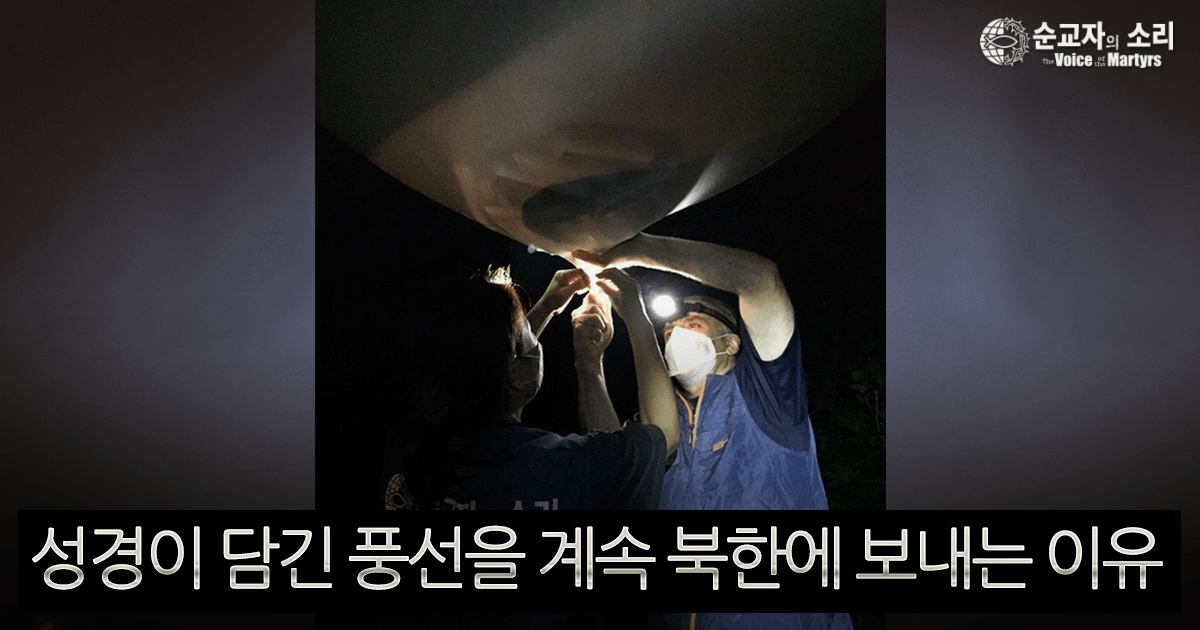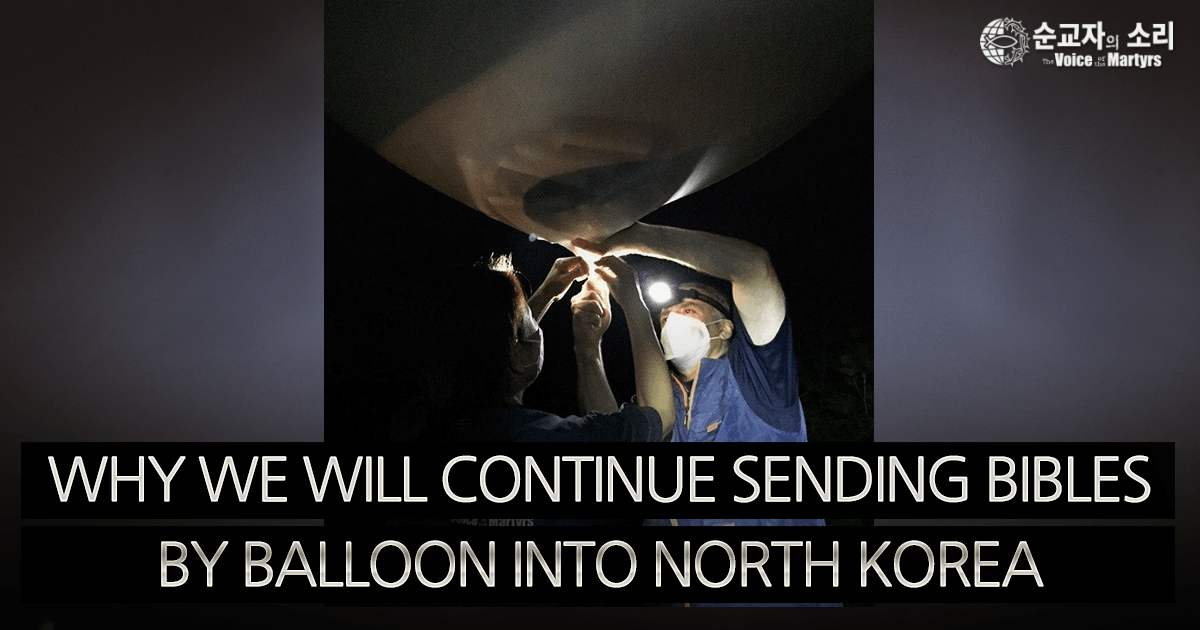
Why we will continue sending Bibles by balloon into North Korea

Park Sang Hak and I have almost nothing in common. His group, Fighters for a Free North Korea, launches political flyers using low-tech, low-altitude balloons. My group, Voice of the Martyrs Korea, launches Bibles using high-tech, high-altitude balloons. My group launches the same content year after year and spends all our time and money on technology to make launches safer and more accurate. His group uses the same technology year after year and spends all its time and money on developing new content to make his flyers as up-to-date and impactful as possible.
But what Park Sang Hak and I share is a non-negotiable vision of Korea where ordinary Koreans, north and south, are able to interact with each other directly, freely, and fully, without the mediation of the state. And we are convinced that such a vision is so fundamental to Korean history and identity, yet by definition so incapable of being brought to reality by political structures alone, that it requires all of us ordinary people in Korea, north and south, foreigner and citizen, freedom fighter and pastor, to risk our lives and our property to bring it about.
Disintermediation—that is, excluding governments from the conversations and interactions between ordinary Korean people—is not the spirit of the Panmunjom Declaration. The spirit of Panmunjom is state mediation of relationships through so-called inter-Korean “exchanges”—e.g., cultural exchanges, sports exchanges, and economic exchanges. Such exchanges are to be arranged by the governments of the two Koreas at the times and locations they consider appropriate. The participants in the exchanges will be those approved by their respective states. The conversations and interactions that will take place in such exchanges will necessarily be suitable by government standards. The north/south family reunions may provide a glimpse of what relationship-by-exchange looks like.
The South Korean Ministry of Unification (MOU) first shared this vision of exchanges with us at VOM Korea in May 2018, when they called us to insist that we discontinue our balloon launches. “You should no longer launch Bibles, but if you follow our guidelines, perhaps one day soon you will be able to share your Bibles with North Koreans in the cultural exchanges we will be arranging,” said the MOU official.
Now, two years later, balloon launching has been declared a crime in South Korea. It has been declared a crime not because it is inherently a dangerous activity. Instead, it has been declared a crime because it is against the spirit of Panmunjom, the spirit of state-mediated exchanges. Balloon launching threatens both Pyongyang and Seoul because it contends that ordinary Korean people, south and north, neither need nor benefit from state mediation in order to speak to one another meaningfully and advance their inter-personal interests.

North Korea has promised to retaliate against balloon launching by committing criminal acts of mass violence against whole South Korean communities. In North Korean state anthropology, “human” is a designation bestowed by the state, in recognition of the recipient’s usefulness and loyalty to the state. It is a conditional designation, one that is revoked when the state determines that the recipient is no longer useful or loyal. This is why Kim Yo Jong’s description of North Korean defectors as “mongrel dogs” and “human scum hardly worth their value as human beings” is not mere political rhetoric. It is an accurate expression of North Korean anthropology.
It is also why North Korea can attack whole South Korean communities. In its reporting of the destruction of the inter-Korean liaison office in Kaesong, North Korea’s KCNA said “those who have sheltered the scum” must “pay dearly for their crimes”. If South Korean communities are harboring balloon launchers, then they are no longer useful or loyal to the Kim family and are thus legitimated as targets for destruction. But if these communities turn balloon launchers away—and if they turn against balloon launchers themselves, treating us as potentially dangerous criminals—then these South Korean communities can once again be regarded as human and thus spared the payment for their “crimes”.
Thus the first “cultural exchange” of the Panmunjom Declaration has now taken place: South Korea has exchanged its definition of “human” for the North Korea one. South Korean authorities now define us balloon launchers, not the North Korean state, as the criminals who threaten peace, safety, and prosperity. Gyeonggi Province Governor Lee even speculates that our “unforgiveable” motivation for launching is to “make a little money”. We launchers are no longer citizens upholding a vision of Korea where ordinary Koreans, north and south, are able to interact with each other directly, freely, and fully, without the mediation of the state. Instead, because we uphold this vision, we are now criminals.
Though it is now the balloon launchers who have committed “unforgiveable” crimes, soon it will be those of us who broadcast by radio into North Korea. That is because state opposition to balloon launching is not an opposition to tactics but to anthropology. Radio broadcasting upholds the same vision of direct contact between Koreans, north and south, without the mediation of the state. Until governments mediate all interactions between ordinary Koreans, north and south, the Supreme Dignity’s offense can never be cooled down.
This is why we launch Bibles, and why we read the Bible on our radio programs. The anthropology of the Bible is that one is human not because one is loyal or useful to anyone but rather because one is created in the image of God. This is an unconditional “imprint” of humanity which cannot be granted or regulated by states as a part of any “exchange”. Governments are created by God to uphold that unconditional imprint, not to replace it with their own.
It is an anthropology that poses equal challenge to the governments on both sides of the DMZ.

